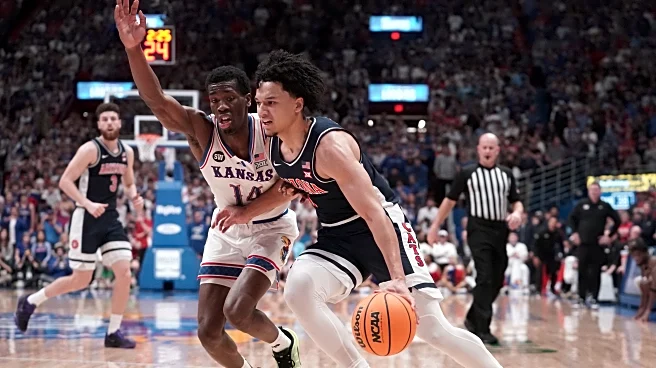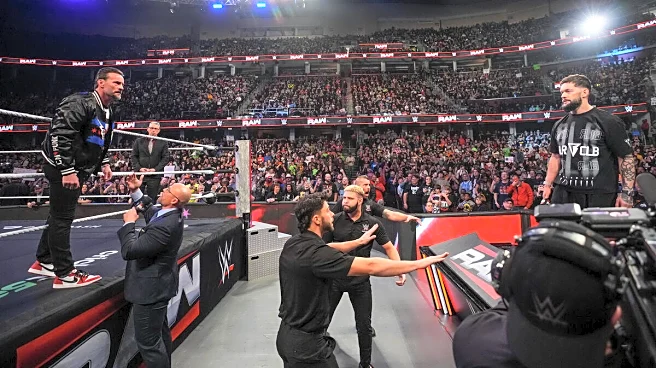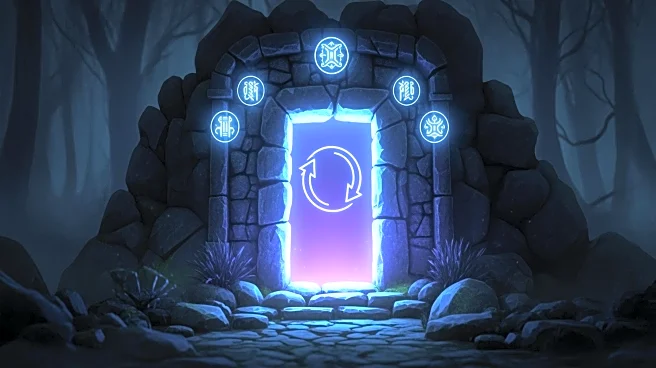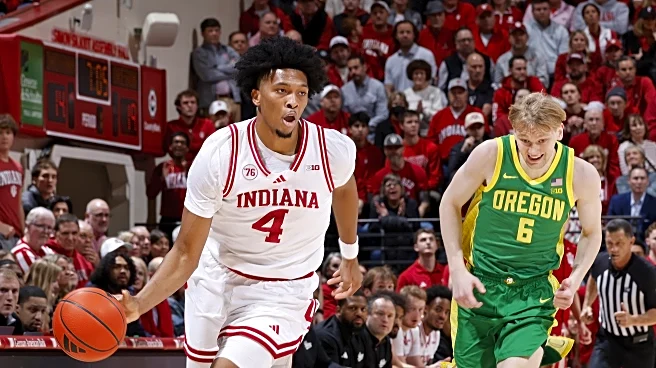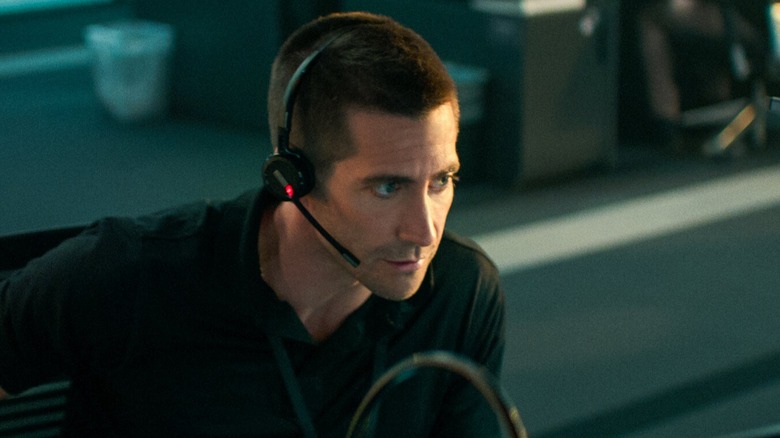
If a movie is going to be mostly close-up reactions of its lead actor, then the actor needs to have an expressive face. Jake Gyllenhaal, who more than fits the bill, faced this challenge in the 2021 thriller
"The Guilty," directed by Antoine Fuqua (who used unorthodox filming methods to shoot the movie during the pandemic) and scripted by "True Detective" creator Nic Pizzolatto.
In "The Guilty," Gyllenhaal plays Joe Baylor, a 911 dispatcher in Los Angeles. The film takes place almost entirely during one of his shifts. Joe (who has a haunted past) is pretty dispassionate about his job... at first. Then a woman named Emily (Riley Keough) calls him, claiming that she's being kidnapped. Trying to help her from a distance, Joe discovers the culprit is likely her abusive ex-husband Henry (Peter Sarsgaard), but gradually realizes his assumptions about the case may have been too hasty.
I've been on the Gyllenhaal defense squad since 2014, when I saw "Nightcrawler" and his swing-for-the-fences performance as bug-eyed grifter Lou Bloom. For my money, that swing was a home run. Gyllenhaal previously worked with Fuqua on the 2015 boxing drama "Southpaw," a memorable performance trapped in a forgettable movie. "Southpaw" rested its laurels on Gyllenhaal, and "The Guilty" takes that even further. Since the camera rarely moves from Joe's desk, Gyllenhaal is one of the few onscreen actors in the movie and the only one who gets significant focus.
Yo can compare "The Guilty" to other bottle films, such as "Locke," which is set entirely in a car driven by Tom Hardy, who is taking phone calls and hearing his life collapse around him; "Secret Honor," where Philip Baker Hall does a one-man show as a post-impeachment Richard Nixon ranting about his enemies; and "The Guilty" — the original version of "The Guilty," that is, a 2018 Danish language film currently streaming on Tubi.
Read more: 5 Reasons Why Disney's Live-Action Snow White Bombed At The Box Office
The Danish Version Of The Guilty Is A Braver Film Than The Remake
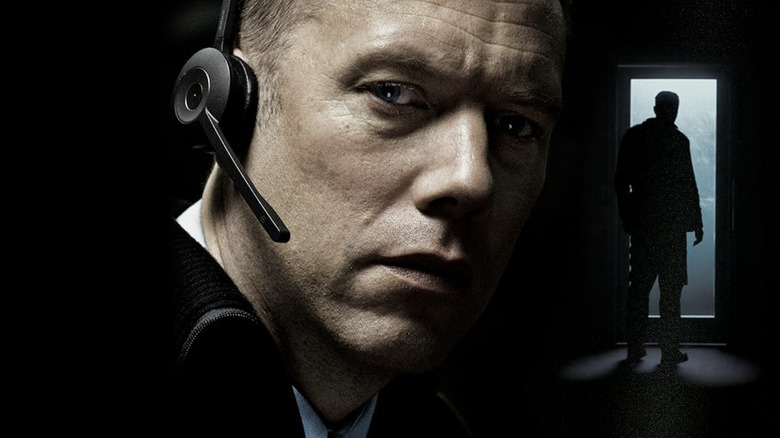
The original version of "The Guilty" (or "Den Skyldige" in Danish) was directed by its co-writer Gustav Möller. It's the same story, but set in Copenhagen with regionally-appropriate character names; the dispatcher is named Asger Holm (Jakob Cedergren), the unseen abducted woman is named Iben Østergård (Jessica Dinnage), and her kidnapper husband is Michael Berg (Johan Olsen). The remake throws in some local color (it's set during the California wildfire season, for instance), but both movies stay on the same track. They both clock in at about 85 minutes, too, discounting credits.
Gyllenhaal produced the remake of "The Guilty" through his company Nine Stories Productions, when he and his producing partners acquired the rights to remake "Den Skyldige" in December 2018, mere months after the movie's Denmark premiere. Apparently, Gyllenhaal and Nine Stories co-founder Riva Marker had been impressed after seeing Möller's film at that year's Sundance Film Festival. This wasn't just another movie for Gyllenhaal, it was evidently a passion project (hence the hiring of Fuqua, a director the actor knew how to work with).
"The Guilty" (2021) is a solid movie, but it also features Hollywood shortcuts and louder emotions, while the original is a more subtle film. The remake literally opens with a Bible verse ("And the truth shall make you free" - John 8:32) spelling out its themes in neon.
The Ending Of The Guilty, Explained
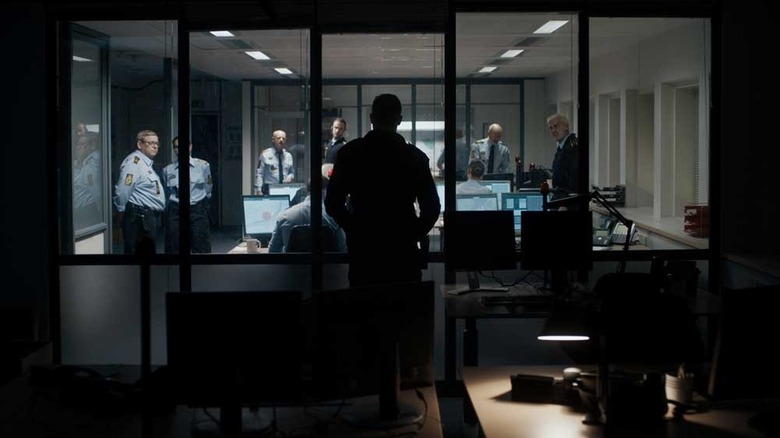
Spoilers for both versions of "The Guilty" follow.
In both films, it turns out that the woman's husband didn't maliciously kidnap her. She is mentally ill and stabbed their infant son because she was convinced snakes crawled inside his stomach. In the original, the baby's wounds are fatal. In the remake, he narrowly survives. This particular choice can't be read as anything but chickening out, as highlighted in our review of "The Guilty."
The cleaner resolution doesn't end there. The movie's protagonist is a former street cop, stuck in dispatcher duty with a court date pending because he shot a 19-year-old criminal — not in self-defense like he claims, but because the boy's crimes angered him. In the remake, Joe goes to the bathroom, has a sobbing fit, and calls his partner Rick (Eli Goree), telling him to admit the truth about the shooting at his trial. Then Joe calls a journalist (Edi Patterson), whom he had blown off earlier, to confess. The movie ends with audio from news reports about Joe's conviction.
The original is more ambiguous. Asger stands up from his desk and walks into a dark hallway with a light behind the door at the end of it. He calls someone (we don't hear who) and then walks through the door. The visual symbols of redemption are clear but still have a lighter touch than the remake. Then again, the remake was shot circa 2020, when awareness of and reactions against American police brutality had reached an all-time high. So, the remake's ending depicting one of the guilty cops accepting their punishment is there for some public catharsis that reality didn't deliver so cleanly.
Neither version of "The Guilty" is a bad movie, but the original is still the superior one. If you can't get over dubbed non-English films, we simply suggest you get over the 1-inch tall barrier of subtitles. The original version of "The Guilty" is streaming on Tubi, while the remake was distributed by and is streaming on Netflix.
If you're looking for the easiest way to keep up with all the major movie and TV news, why not sign up to our free newsletter?
Read the original article on SlashFilm.
